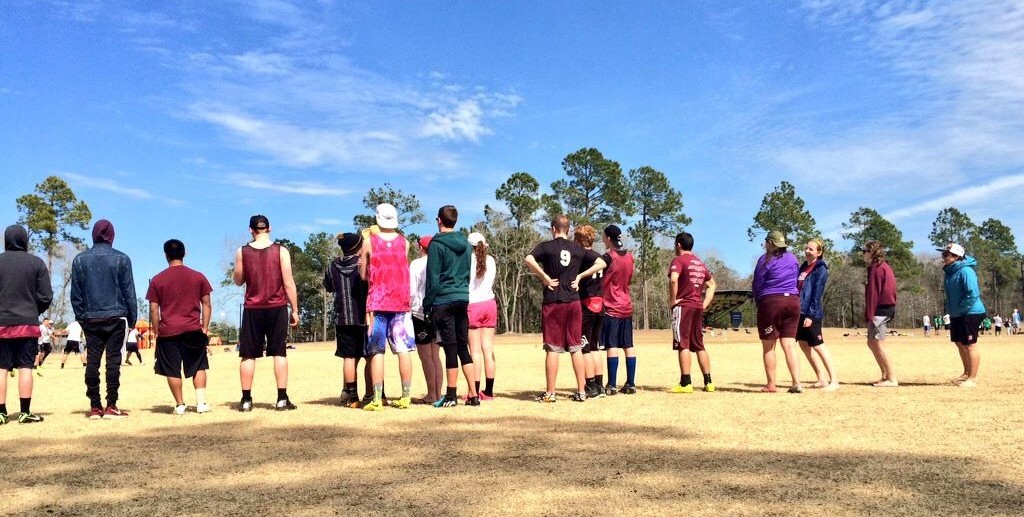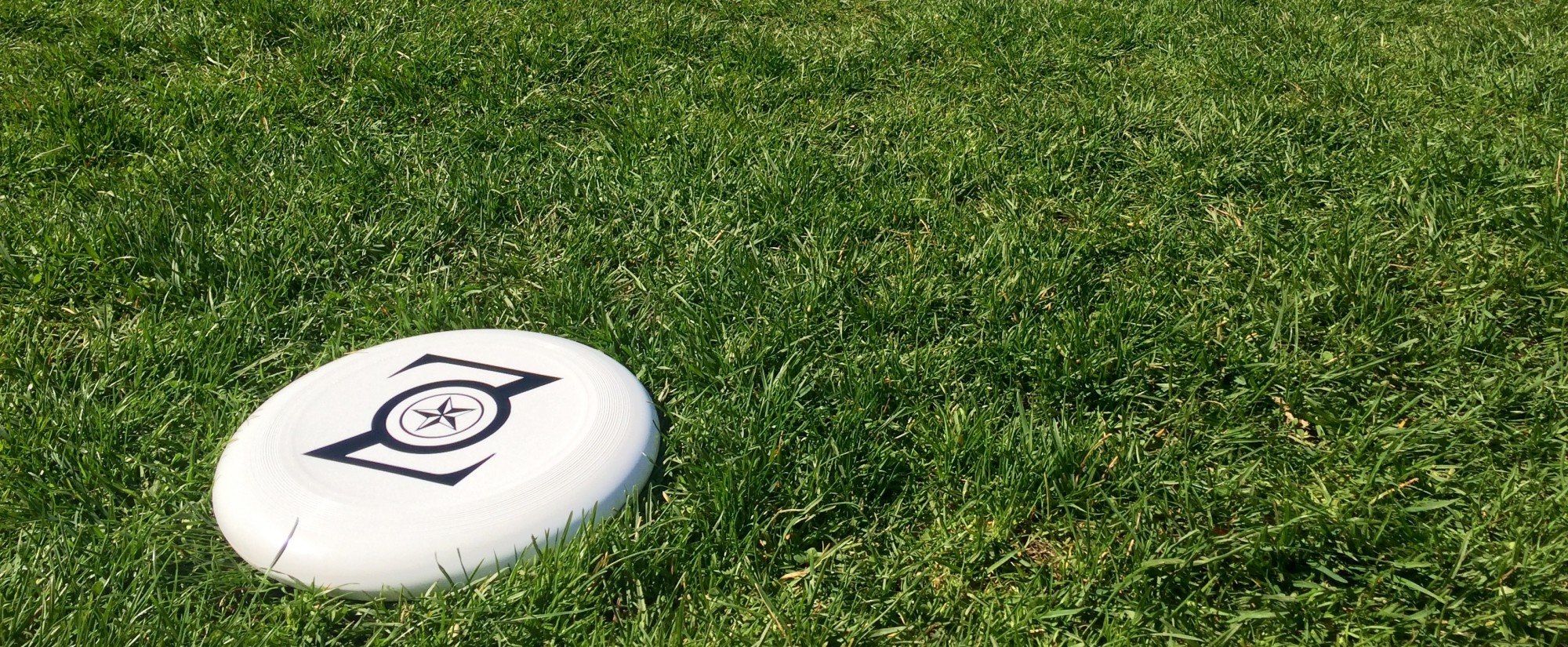“Player defined and controlled non-contact team sport played with a flying disc on a playing surface with end zones in which all actions are governed by the ‘Spirit of the Game™.” 
“Ultimate was developed in 1968 by a group of students at Columbia High School in Maplewood, N.J. Although ultimate resembles many traditional sports in its athletic requirements, it is unlike most sports due to its focus on self-officiating, even at the highest levels of competition. This concept, called Spirit of the Game, is integrated into the basic philosophy of the sport, written into the rules, and practiced at all levels of the game from local leagues to the World Games.”
|
ULTIMATE IN 10 SIMPLE RULES
- The Field: A rectangular shape with end zones at each end. A regulation field is 70 yards by 40 yards, with end zones 25 yards deep.
- Initiate Play: Each point begins with both teams lining up on the front of their respective end zone line. The defense throws (“pulls”) the disc to the offense. A regulation game has seven players per team.
- Scoring: Each time the offense completes a pass in the defense’s end zone, the offense scores a point. Play is initiated after each score.
- Movement of the Disc: The disc may be advanced in any direction by completing a pass to a teammate. Players may not run with the disc. The person with the disc (“thrower”) has ten seconds to throw the disc. The defender guarding the thrower (“marker”) counts out the stall count.
- Change of Possession: When a pass is not completed (e.g. out of bounds, drop, block, interception), the defense immediately takes possession of the disc and becomes the offense.
- Substitutions: Players not in the game may replace players in the game after a score and during an injury timeout.
- Non-contact: No physical contact is allowed between players. Picks and screens are also prohibited. A foul occurs when contact is made.
- Fouls: When a player initiates contact on another player a foul occurs. When a foul disrupts possession, the play resumes as if the possession was retained. If the player committing the foul disagrees with the foul call, the play is redone.
- Self-Officiating: Players are responsible for their own foul and line calls. Players resolve their own disputes.
- Spirit of the Game: Ultimate stresses sportsmanship and fair play. Competitive play is encouraged, but never at the expense of respect between players, adherence to the rules, and the basic joy of play.
|
11th Edition Rules: 11th edition (pdf for web)
Learn More: http://www.usaultimate.org/about/

